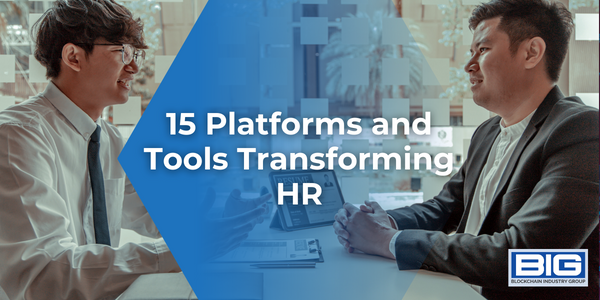
As technology continues to advance at a rapid pace, the human resources (HR) profession is undergoing significant changes. From automating routine tasks to enabling remote work, future technologies are transforming the way HR professionals do their jobs. Here are 15 platforms and tools that are transforming the HR profession:
- Automation and artificial intelligence (AI) tools: AI-powered tools are being used to automate a wide range of HR tasks, such as resume screening, benefits enrollment, and performance reviews. These tools can help HR professionals be more efficient and effective, but they also raise important questions about the future of work.
- Virtual meeting platforms: Platforms such as Zoom, Skype, and Google Meet are making it easier for HR professionals to conduct meetings and collaborate with colleagues and clients remotely. These platforms are particularly important for HR professionals who are working remotely or managing teams that are dispersed across different locations.
- Social media platforms: Social media platforms such as LinkedIn, Twitter, and Facebook are being used by HR professionals to connect with potential candidates, share company news and information, and build employee engagement.
- Online learning platforms: Platforms such as Udemy, Coursera, and LinkedIn Learning are being used by HR professionals to offer training and development opportunities to their employees. These platforms allow employees to access learning materials and expert speakers regardless of their location.
- Employee engagement platforms: Platforms such as Workplace by Facebook and Slack are being used by HR professionals to create virtual communities where employees can connect and collaborate. These platforms can help improve employee engagement and foster a sense of community within an organization.
- Performance tracking software: Software such as Asana, Trello, and Smartsheet are being used by HR professionals to set and track employee goals, provide feedback, and measure progress. These tools can help HR professionals be more efficient and effective in managing employee performance.
- Diversity and inclusion tools: Tools such as Textio and Unconscious Bias are being used by HR professionals to identify and address bias in job descriptions and other HR materials. These tools can help promote diversity and inclusion in the workplace.
- Employee health and well-being tools: Tools such as Headspace, Talkspace, and Fitbit are being used by HR professionals to support the health and well-being of their employees. These tools can help employees manage stress and improve their overall physical and mental health.
- Onboarding platforms: Platforms such as Lever and Breezy HR are being used by HR professionals to streamline the onboarding process and provide new hires with access to training materials and resources.
- Talent management platforms: Platforms such as Workday and Jobvite are being used by HR professionals to identify and develop top talent within their organizations. These platforms can help HR professionals create customized development plans for high-potential employees.
- Employee retention tools: Tools such as Culture Amp and TINYpulse are being used by HR professionals to identify the factors that contribute to employee turnover and implement strategies to address those issues. These tools can help HR professionals improve employee retention and reduce turnover.
- Employee advocacy platforms: Platforms such as SocialChorus and Amplify are being used by HR professionals to help employees become advocates for their organizations. These platforms can provide employees with the tools and resources they need to share company news and information with their networks.
- Cloud-based HR systems: Systems such as BambooHR and Workday are being used by HR professionals to manage employee data and provide employees with access to information and resources no matter where they are.
- Gamification platforms: Platforms such as GamEffective and Axonify are being used by HR professionals to create fun and engaging learning experiences for employees. These platforms can help HR professionals make learning more enjoyable and effective.
- Virtual reality training: Virtual reality (VR) technologies are being used by HR professionals to provide immersive training experiences for employees. For example, some companies are using VR to simulate work environments and provide hands-on training for employees, while others are using VR to help employees understand the experiences of people from different backgrounds and promote diversity and inclusion.
The Unspoken Truths of Retention: Key Factors for Keeping Top Talent
—
The Untapped Potential of Employee Onboarding: Maximizing Success from Day One
—
Top 10 Hidden Gem Human Resources Bloggers
Overall, these platforms and tools are transforming the way HR professionals do their jobs and support their organizations. By leveraging these technologies, HR professionals can be more efficient and effective in their roles, while also staying up-to-date with the latest trends and best practices in the industry.



